
UBER IMAGES/Adobe Stock
The average woman spends 11 minutes a day putting on makeup. And there are reasons why you shouldn’t feel guilty for a single second of that.
Our society has a long history with makeup. In fact, evidence of cosmetics dates back to 10,000 B.C. in ancient Egypt. Both men and women used ointments to clean the skin and cover up body odors. Kohl, a ground black mineral, was used to line the eyes to decrease sun glare and reduce the risk of eye infection (believed to be true at the time). Soon after, colored clays and dyes began to rouge lips and stain nails. And we never stopped. According to the NDP Group, global spending on cosmetics was estimated at $41.4 billion in 2015. That’s a whole lot of lipstick.
But recent trends have highlighted a move away from makeup. With the growing popularity of the #nomakeup movement — celebs like Alicia Keys and Alessia Cara even showed up barefaced to the MTV Video Music Awards last month — a girl can start to feel like creating the perfect cat eye is somehow doing something wrong.
“Women often have a really conflicted relationship with makeup,” Autumn Whitefield-Madrano, author of “Face Value: The Hidden Ways Beauty Shapes Women’s Lives,” tells LIVESTRONG.COM_._ “Women who want to wear makeup, but aren’t sure about it; women who wear it, but feel guilty about it. But there are lots of really positive reasons to wear makeup.”
That is, if it’s your thing in the first place, Whitefield-Madrano stresses. “While I am a champion of makeup, if a person doesn’t feel comfortable in it, they shouldn’t wear it.”
Even Keys agrees. In response to criticisms for her no-makeup VMA look, she posted a barefaced selfie with the caption, “Y’all, me choosing to be makeup free doesn’t mean I’m anti-makeup. Do you!”
So if “doing you” involves getting all dolled up with a dozens of different products every day, cheers to you. Here are seven mental-health benefits of wearing makeup.
1. It can boost your confidence.
You know the phrase “fake it till you make it”? Cosmetics can help you sell that. “Putting on makeup is like putting on a pair of high heels. It gives you confidence and makes you feel more in control,” says Sonia Kashuk, makeup artist and founder of Sonia Kashuk Beauty.
“I am hugely supportive of Alicia Keys and the movement away from the heavy makeup, but I also believe that even the slightest bit of makeup can help create … a more perfected version of yourself. It is a little polish for your attitude and look,” says Kashuk.
A study published in the International Journal of Cosmetic Sciences agrees. When women were asked to imagine themselves wearing makeup or going barefaced in different social situations, women “reported being more self-confident and sociable when wearing as opposed to not wearing their customary cosmetics.”
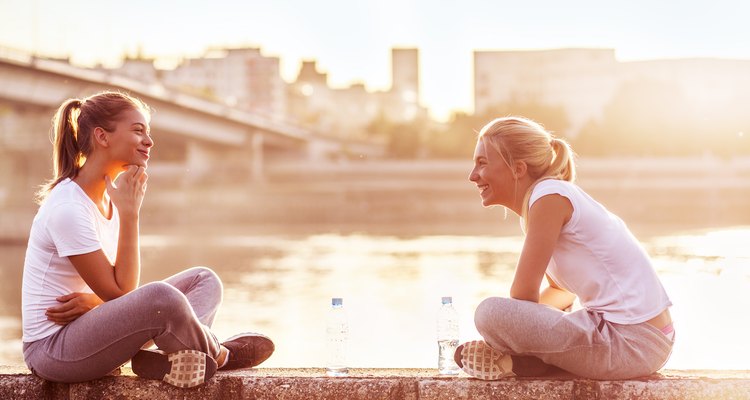
milicanistoran/Adobe Stock
2. It can help you connect with other women.
While some may think that makeup could cause of schism between women, Whitefield-Madrano often found the opposite in her research for “Face Value.”
“For the most part, I didn’t find that makeup divided women. Sure, there are those women who are invested in cattiness, but by and large I found that women use beauty as a connector more than a divider.” While discussing the best mascara or how to hide dark circles might be brushed off by some as superficial, Whitefield-Madrano suggests a different viewpoint.
“One woman I interviewed said that when she was wearing makeup or talking with another woman about makeup she felt a kind of humility was involved,” explains Whitefield-Madrano. “It was a way of saying ‘I don’t think I’m so gorgeous that I don’t need something to look my best.’ And that can bring women together.”
In other words, admitting “I use concealer too” can create a kind of cosmetic camaraderie among women — and maybe help you finally find your Holy Grail foundation along the way.
3. It can prepare you for “battle.”
Just like we have certain clothes for working out and certain ones for going out, the idea of “putting on our face” with makeup can help prepare our mental mindset for whatever “battle” we are heading into.
Putting on makeup can help us step into the different roles in our lives. “Makeup makes me feel awake and ready for the day,” says former model and makeup enthusiast Brooke Baker. “Makeup can feel protective, like armor,” explains Meli Pennington, makeup artist and director of makeup artistry at Kokko Beauty.
“In work situations — especially meeting new people — wearing red lipstick feels like having a great pair of shoes on. And who would leave home (especially in New York City) without shoes?” Makeup then helps us transform into the different parts we play. As Whitefield-Madrano writes in “Face Value,” “The act of applying camouflage becomes not only a way of making yourself look the part, but also a way of actually becoming the part.”
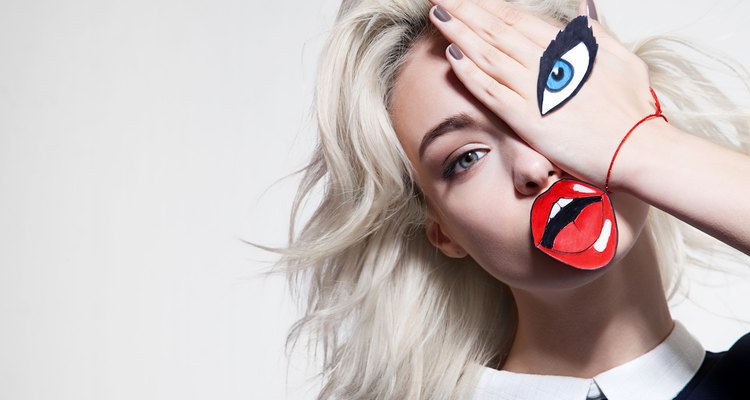
deniskomarov/Adobe Stock
4. It’s fun.
Makeup isn’t all business, though. It also can be downright fun to create a brand-new look with a few simple pencils and palettes. In her COVERGIRL Mirror Monologue, singer Andra Day explains, “The look that I decide to do each day really depends on my mood. Putting on makeup is like putting on a costume. You get to become this whole other person. For me it’s just fun.”
Whitefield-Madrano reports that women who view makeup as a way to play are more likely to have higher self-esteem (even without makeup on) and be more assertive. “Makeup doesn’t express the self for this kind of wearer,” writes Whitefield-Madrano. “Instead, she wears it to channel a particular state of being, whether that’s glamorous, gentle, artistic, rebellious and so on.”
5. It can make you appear more competent — even if you don’t feel like it.
While we’ve already reported that it can make you feel more self-assured, wearing makeup can also help others perceive you as more competent — just by looking at you.
A study published in the journal PLOS ONE presented participants with four versions of the same face: one barefaced and three with increasing degrees of makeup application, which they termed “natural,” “professional” and “glamorous.” Participants were then asked to rate the different faces for attractiveness, likeability, trustworthiness and competence. The researchers found that participant’s feedback did vary for each makeup look and that all three makeup looks rated positively — proving that attractiveness is correlated with competency.

Twenty20/@amyjhumphries
6. It’s designated “you” time.
We know you’re busy. But whether your morning makeup routine takes you four minutes or 40, that time is time you are spending on yourself — even if there are kids or furry animals vying for your attention every 30 seconds.
“Time and time again, I heard from women that another benefit of makeup was the ritualistic aspect of it,” says Whitefield-Madrano. “This is a way of getting ready physically, but also mentally.” The scent of the cosmetics, the feel of brushes or creams, the music (or quiet) you listen to — each of these can help build a kind of Pavlovian calm to your daily makeup routine.
“For me it’s a form of pseudo-meditation,” reflects Whitefield-Madrano. “It’s usually quiet and calm, and even though it’s only 6.5 minutes of my day, that’s my time. I’m looking in the mirror, so there’s this kind of check-in with myself.”
The findings were further supported by the 1972 publication of “What Is Beautiful Is Good” in the Journal of Personality and Social Psychology. Psychologists have often coined this the “halo effect” of beauty — the belief that people perceived as beautiful are thought to possess other positive traits, such as being honest, successful and competent.
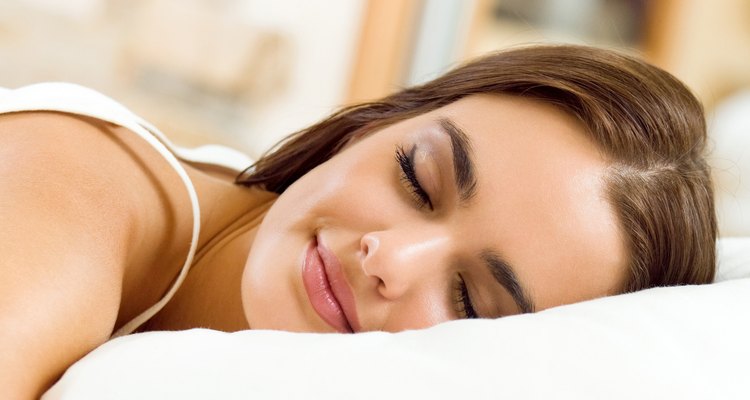
vgstudio/Adobe Stock
7. It can help you sleep better.
File this under “Things We Didn’t Know.” Wearing makeup may help you sleep better at night. According to a study published in the journal Psychology, women who wore makeup two or more days per week showed higher sleep quality than those who wore makeup only one day a week or less.
The study hypothesized that either chemical compounds in makeup, the mechanical stimuli of applying makeup or psychological stimuli of the application process may be the cause. Whatever the reason, that bold lip color might just score you some higher-quality rest.
Related Articles

52 Faces: Stephanie G-M
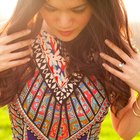
52 Faces: Jenna Chong

Acne Ingredients to Avoid

Should Women Over 60 Wear Eyeliner?

How to Make Makeup Blend Into Your ...

What Are the Benefits of Lemon Juice ...

How to Mix Bronzer With Moisturizer

How to Make Myself Feel Beautiful After ...
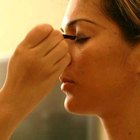
Where Can I Get a Professional Makeover?

How to Make a Girl Fall in Love With ...

Olive Oil Soap for Acne

Nivea Q10 Moisturizer Vs. Aveeno ...

Preparation H and Dark Circles Around ...

How to Cover Up Lip Hair Without Waxing
Does Drinking Collagen Live Up to the ...

Hollywood Makeup Tricks for Uneven Skin

How to Physically Attract Men

Is It Better to Wash Your Face With Hot ...

Makeup Tricks to Hide a Sagging Chin

7 Things That Make You Unlikable
References
Writer Bio
Kate Bayless is an accomplished writer covering lifestyle, health, travel and parenting with bylines across the web at sites like Prevention, LivingHealthy, Babble and Momtrends as well as national glossies like Parents and Fit Pregnancy.